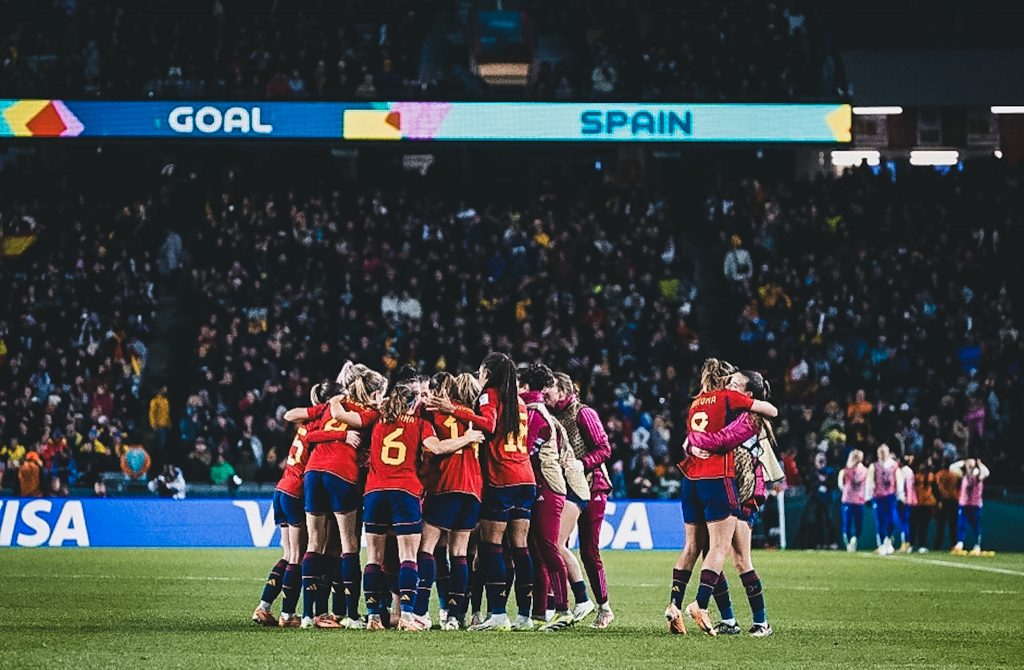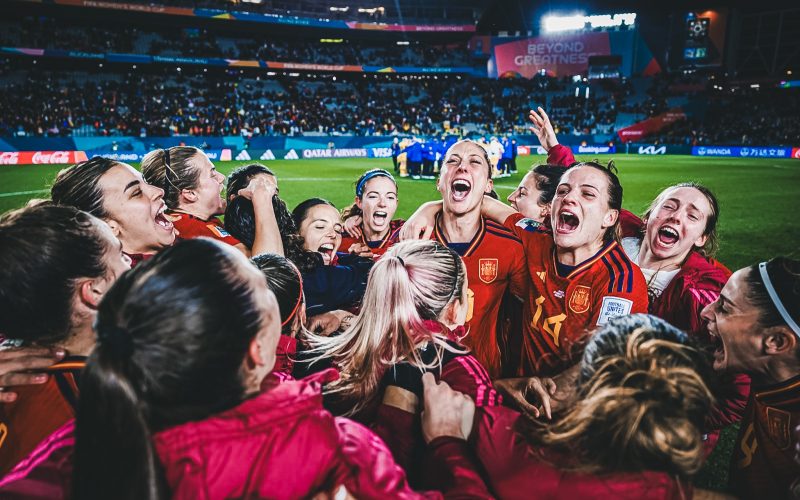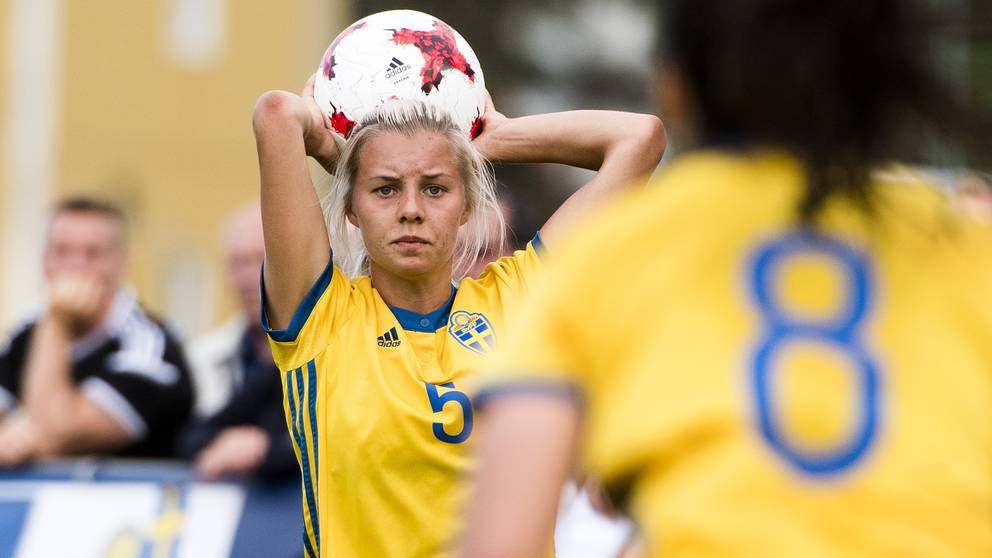There will be a new name on the FIFA Women’s World Cup this Sunday afternoon. With Spain confirming their place in the final by beating Sweden on Tuesday, a tale of abuse, politics and powerplays may end in the worst possible way, with a system and culture in which players have suffered greatly through the abuse of power by a controlling manager and his supporters within RFEF, the Spanish federation, being rewarded with a World Championship
If you were a casual viewer of women’s football, or perhaps one sucked in by this World Cup, Spain getting to the final might seem a textbook narrative example of a talented nation finally finding its groove at the right time.
But in Spain’s case, the issues for that underachievement have been often made clear for all to see, and those issues rest squarely with coach Jorge Vilda and the treatment of their women’s team by the Spanish federation, of whom Vilda is almost the untouchable pet/company man.
To understand why, you only have to look at the Spain squad. This tournament, is missing Mapi Leon, arguably the best female centre back on the planet. It’s also missing Patri Guijarro, one of the most dynamic ballplaying midfielders in the women’s game, Lucia Garcia, who has been hugely impressive for Manchester United and Atletico Madrid before them, and Sandra Panos, one of the best women’s goalies in the world. Other names like rising star Amaiur Sarriegi are also among the missing 12 players from the Spanish squad that underachieved in the Euros – but none are injured. They are all voluntarily refusing to play for their country until Jorge Vilda is forced to resign or step down, due to his managerial practices and what the players say is unacceptable and abusive treatment of players.
The twelve were originally fifteen and included three players currently playing in Australia/New Zealand – Ona Batlle, Alexia Putellas and Aitana Bonmati, who have seemingly decided that the glory of potentially winning a World Cup is more important to them than standing up in solidarity with their team-mates, which is a separate discussion.

Those who have stood firm against the pressure brought to bear by footballing institutions in Spain have been accused by the Spanish federation RFEF of not having the necessary will to represent their country, labelled saboteurs or traitors by some, and threatened with being blacklisted from representing their country. They have been cast as villains and unreasonable in the language and attitude of both Vilda and the head of RFEF (and chief Vilda supporter) Luis Rubiales.
The missing players are suffering, being vilified by their own country, and denied the opportunity to achieve every footballer’s dream of representing their country, simply for standing up and refusing to be treated badly by male authority figures in power.
Make no mistake here – whilst this situation is not the same as, say, the NWSL scandals, the Zambia scandals or several others (there is no suggestion that Vilda has physically abused players under his care) it is still a textbook situation of abusive behaviour in the women’s game. Players say that under Vilda they were denied basic rights on international duty like the right of privacy in their own rooms (doors were left unlocked under the orders of Vilda and his staff to always be able to monitor the players, for example) – players concerns over injuries, tactics and the attitude of staff were routinely ignored, and Vilda ruled and continues to rule his team like a dictator, passing blame onto players for every failure and taking credit for every success.
It cannot be stated enough that this Spanish side, whilst winning on the field, are a mess off it and are in the World Cup final despite their management, not because of it.
For me, I see players refusing to interact with Vilda and his staff in celebrations, openly shunning any attempt from the manager or his staff even to do the traditional interactions you expect during games, like a pat on the back for substituted players, for example. It is clear that whilst the players might be playing for their country, they are not playing for their country’s manager.
BBC commentator Jonathan Pearce seemed to dismiss all that’s gone before by saying “Vilda’s players may have had their issues, but they’ll love him now” in commentary in the semi-final, or the brushing over of the player’s complaints and issues in coverage has only grown and there is a real fear amongst many Spanish fans and journalists that Vilda and the RFEF will once again take the credit for their players’ blood, sweat and tears.
It goes without saying that a “redemption arc” for Jorge Vilda would be one of the worst possible things that could come out of the World Cup, and that is why every fan of women’s football should hope Spain doesn’t win on Sunday.
For if Spain does win, then Vilda’s coaching and the environment around the Spanish team will be legitimised and in the eyes of many will be forgotten under the claim that “it brings results, so it’s worth it”.
If Spain does win, then the twelve players who have risked their international careers and ruled themselves out of a chance of achieving footballing Nirvana for themselves in the hope of driving real change for themselves and their elders will have to sit at home watching the man who has made playing for their country intolerable bask in unearned glory, along with several of their teammates who had broken ranks with acting for the greater good in search of personal glory.
If Spain does win, then Jorge Vilda can claim to be vindicated and that treating his players horribly works and for many, this will be heartbreaking if the allegations are glossed over, forgotten about or worse, legitimised.
In a sport trying to become safer for women and girls, the victory and redemption arc of male authority figures who have shamelessly and openly mistreated female players under their care is saddening.
The reason why is simple. If Jorge Vilda wins a World Cup, then in the eyes of far too many people, it will legitimise the actions of Vilda and coaches like him.
And for the sake of the women’s game, whether it be the roaring, proud Lionesses of England or the joyful, inspiring Matildas of Australia I am hoping that they succeed and lift the trophy.
Whilst that may cause the Spanish players at this World Cup short-term sadness, it will be better for the game in the long run. As another great of the women’s game, Marta, said about Brazil, Spain has to cry now so that women’s football both in Spain and beyond can smile later.









